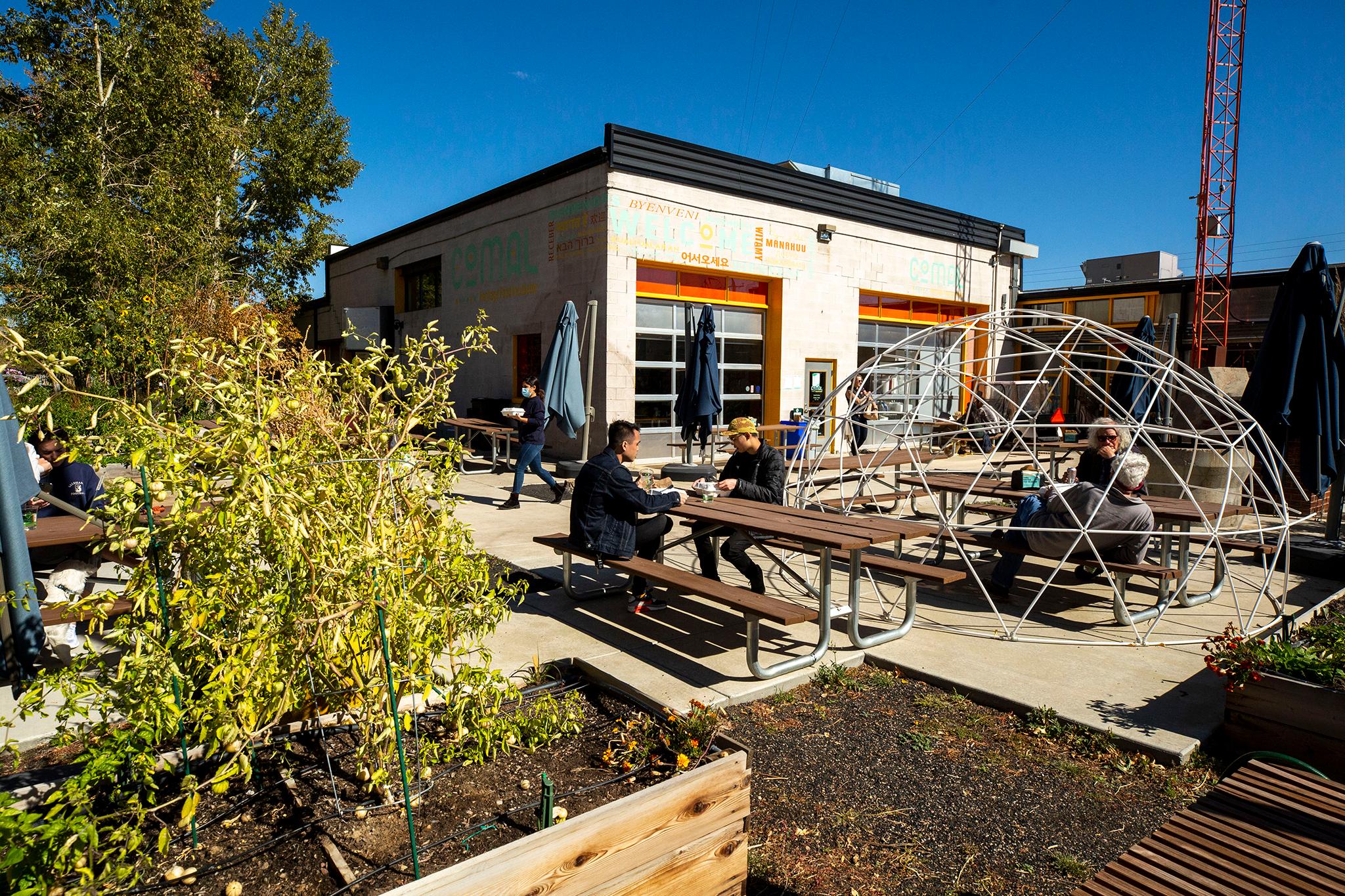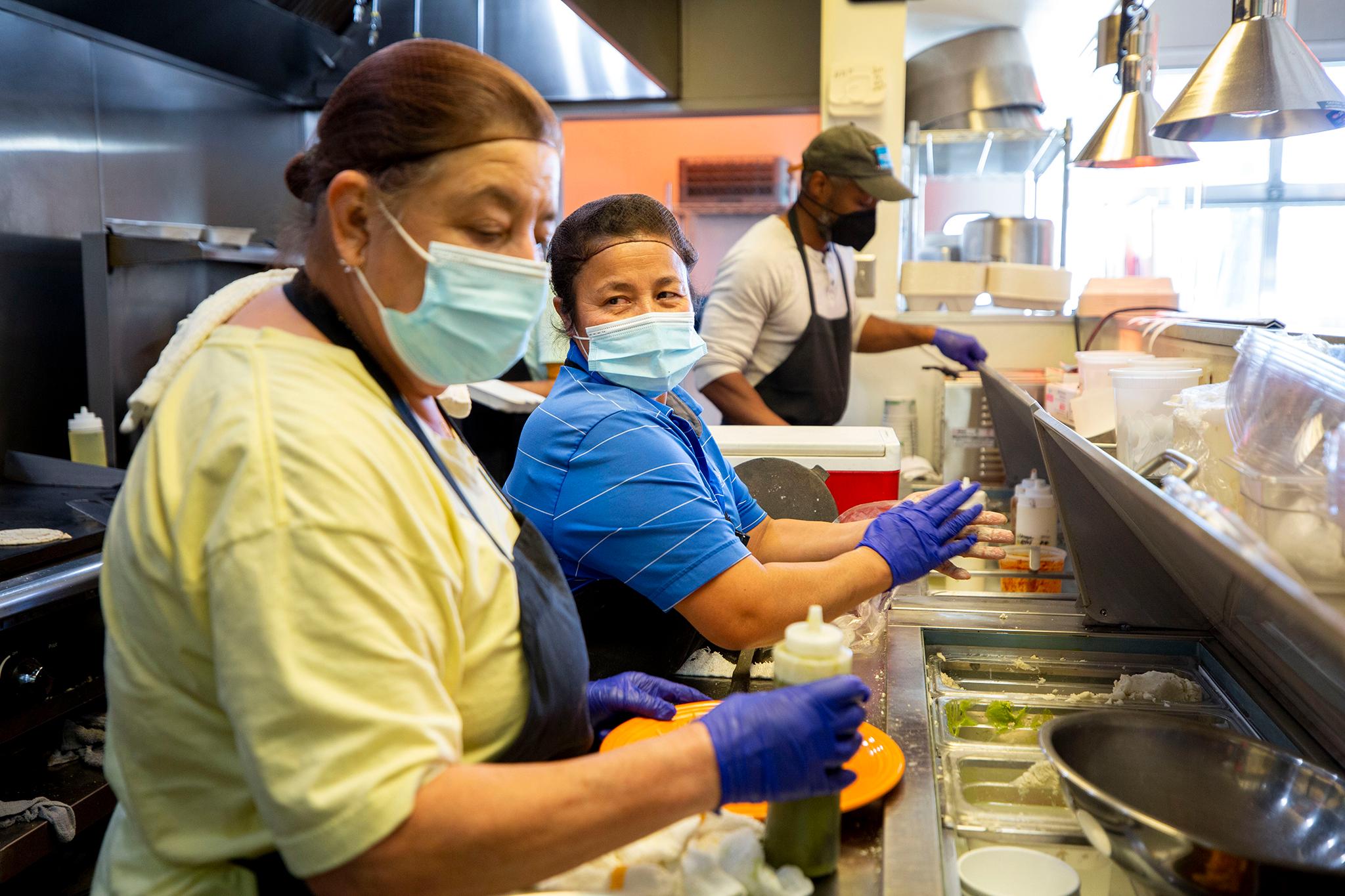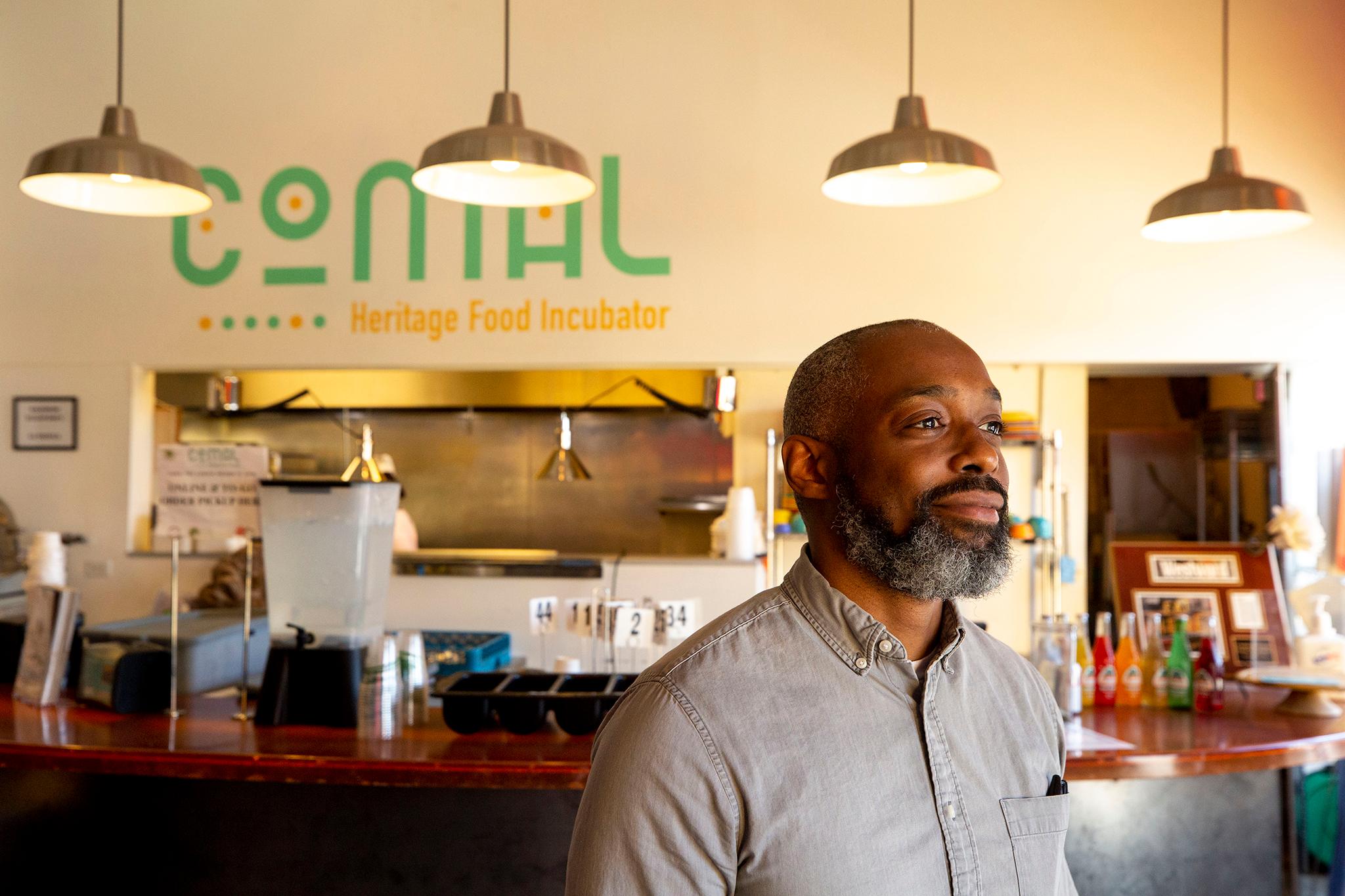By Paul Albani-Burgio
Like any on-trend city worth its weight in millennials, Denver loves avocados.
So for years, Comal Heritage Food Incubator has served a whole lot of them.
"We'd usually buy about 60 in a week," said Arden Lewis, the executive chef and program manager at Comal. "And you can make a lot of guacamole with 60 avocados."
But now, those who come to the five-and-a-half year old restaurant in Globeville expecting to get a green fix will need to adjust their creamy plans: Comal is no longer serving guacamole or any of its other avocado-containing dishes.
Comal, like many restaurants that rely on avocados imported from Mexico, first stopped using avocados in February when the USDA enacted a ban on imports of the green fruit after a USDA inspector working in Mexico received an anonymous verbal threat.
Details of the threat were not made public, but the New York Times reported that the avocado industry has attracted the interest in the past decade of drug cartels, which have become more fragmented and have sought ways to diversify their illicit-income streams.
The ban was lifted a week later after the USDA "worked with agencies in Mexico to enact more safety measures for its inspectors" and the U.S. and Mexico agreed to a security plan put forth by the government of Michoacán, the sole Mexican state that can export avocados to the U.S.
The fruit's prized place on many menus was restored. But not Comal's. Lewis said the decision to keep them off the menu came out of concern over the risks faced by avocado growers and inspectors in Mexico, an issue he became aware of only after hearing about the USDA ban.
"We want workers to have a quality of life, and our demand [for avocados] shouldn't put pressure on the workers and their safety," Lewis said. "We shouldn't sacrifice their safety because we love the taste of avocados.
"They did lift the ban but what assurances do we have that those safety measures are being put into place?" said Lewis, who said the situation has opened his eyes to the risks faced by Mexican agriculture workers, including a USDA Animal and Plant Health Inspection Services inspector killed in 2020. That killing occurred a year after the agency had threatened to withdraw inspectors in Michoacán after they were threatened at gunpoint.

Eighty percent of the avocados Americans eat are grown in Mexico.
While Michoacán is responsible for producing about 80% of the avocados consumed in the U.S., another 10% are homegrown, with the vast majority coming from California. But for Lewis, simply switching to California avocados felt akin to turning a blind eye to the problem.
"I think it's not really fair to the workers in Mexico to say we need avocados so badly that we are going to ignore the danger they are in so we can go buy somewhere else," he said. "I think that we can sacrifice some of our love of avocados to show support for the workers down in Mexico and those who do the oversight."
He adds that while he isn't able to lobby the USDA or go to Mexico to demand change, taking avocado off the menu felt like a way to stick up for what he thinks is right.
But there was another, more practical, concern: price.
Lewis said avocados are currently priced at $2.10 each, which is up sharply from about $1.15 each before the ban. He said he can't keep prices on menus competitive and buy avocados.
While many restaurants try not to let their food costs go higher than 30% of their revenue, Lewis said he tries to keep the number somewhat below that threshold so more money can go back into the restaurant's unique training program, which aims to train women so they can eventually open their own restaurants.
"I have price points and price caps on my menu," he said. "There are certain prices I won't charge for food because I just think it's kind of ridiculous."

In addition to guacamole, the other avocado items on the Comal menu included an avocado salsa that topped the restaurant's carnitas and a salad dressing.
However, Lewis said the decision to move away from avocados has actually allowed the restaurant to reinvent the recipes that used to use them and has helped the chefs be more creative and versatile. The carnitas are now served with a salsa made with chili and tomatillo peppers created by one of the program's students, while the avocado dressing has been replaced with an herb ranch. Those looking for chips and guac can opt for chips and salsa instead.
Arden said the changes haven't impacted sales, and more customers haven't noticed them, save for a few who ask about guacamole.
"We've had people come in and ask for it and say 'I would pay the price,'" he said. "But I say, 'how many times would you pay that price?' It's kind of like a bad Starbucks coffee habit, where you just realize you are paying too much money for coffee when you can probably make it yourself a little bit cheaper."
Comal has joined a worldwide movement that has been growing for some time.
In 2018, The Wild Strawberry Cafe in Buckinghamshire, England, announced it would stop selling avocados over ethical concerns. Wildflower, a vegetarian restaurant in London, also stopped using them because its head chef learned that their popularity was making them unaffordable in the countries where they are produced. That same year, JP McMahon, the chef behind two Michelin-starred restaurants in Ireland, told the Irish Independent that he felt restaurants should stop using avocados.
"I don't use them because of the impact they have on the countries that they are coming from -- deforestation in Chile, violence in Mexico," he said. "For me, they are akin to battery chickens. I think Irish restaurants should make a conscious effort to not use avocados or at least reduce the amount they use. You can get Fair Trade avocados, but most are not produced this way."
Lewis said he plans to continue to pay attention to both avocado prices and conditions in the industry and would consider bringing them back to Comal if he can find a source that shares the program's commitment to safety, quality and affordability.
For now, he said he's more than content to do without them and hopes that by doing so he can help customers think a little more critically about their own consumption decisions.
"We just want to raise a little more awareness for people, and then they can make their own decision, right?" he said.













